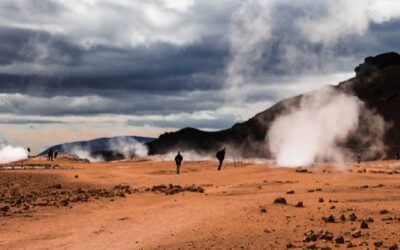I’m as disappointed as the next person in some of the conduct evident in the hacked emails of the Climate Research Unit at the University of East Anglia. Although I generally have some sympathy for a derogatory tone taken towards the so-called skeptics — after all, deniers tend to be a community wholly devoted towards misrepresenting and misusing climate science for their own political ends — it’s unacceptable coming from climate scientists.
We tend to expect a lot from policymakers and their scientific advisers. Scientists deal with internal politics like any other field, and the CRU emails show that certain scientists can be defensive, mean, and outright dismissive of opposing views. These emails have made it abundantly clear that the work of explaining the state of climate science needs more time and energy devoted to it, not less. These emails show that climate scientists must, even in the face of irrational opposition, take the highest road possible. These emails show that the complexity of climate science is not something that can be swept under the rug, or hidden. These emails show that we have a lot of work left to do.
I don’t have the expertise to address every supposed “nail in the coffin” that these emails uncover — Joe Romm, a physicist, does though! — and am mostly exhausted at the thought. What continues to be abundantly clear is that the earth is getting warmer (on average, with great regional and local variability), and that human-caused greenhouse gas emissions are the principal source of that warming.
I was going to post about this study back in September, but the pace of climate-related science articles overwhelmed me. Now that it seems we’ve got to reaffirm that global warming is real, it’s worth a glance. What it shows is that the summer temperature of the Arctic over the last 2,000 years was steadily declining, largely due to decreased solar insolation associated with the earth’s orbit. About 150 years ago though, the temperature, as measured by tree rings, lake sediments, and ice cores, began sharply increasing.
Perhaps skeptics will say that it’s all natural variability, but what it looks like to me is a steadily decreasing temperature interrupted by a sudden increase, just around the time of the Industrial Revolution. Skeptical?
Brought to you by terrapass.com
Featured image








